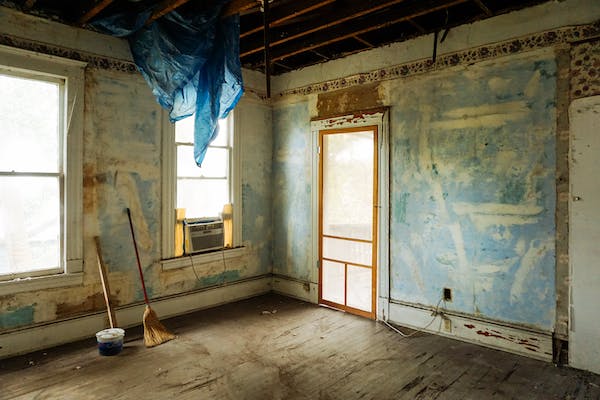UK Landlords Legal Requirements
Your legal responsibilities
There are around 150 laws now that apply to a landlord when they come to let a property. Here we highlight some of the key legal responsibilities that landlords must adhere to when letting their property.
Gas Safety Check
An annual Gas Safety check is required and must be provided by a Gas Safe engineer. The inspection ensures that all gas appliances, pipe work and flues that are provided with the property is in safe and working order.
A certificate is obtained after an inspection. You don’t need a new certificate per tenant, you just to get a new one every 12 months and issue a copy to existing tenants with in 28 days after getting the check. New tenants should be given a copy at the start of the tenancy.
For more information on Gas Safety and Gas Safety Certificates.
Smoke and Carbon Monoxide Alarms
Private rented sector landlords in England with single tenanted properties (e.g. NOT Houses in Multiple Occupation) are required, from October 2015, to:
- have at least one smoke alarm installed on every storey of their rental property which is used as living accommodation, and
- have a carbon monoxide alarm in any room used as living accommodation where solid fuel appliances are contained (e.g. a coal fire, wood burning stove).
- check that each prescribed alarm is in proper working order on the day the tenancy begins if it is a new tenancy (this part only applies to “new” tenancies that start on and after the 1st of October 2015).
For more information on Landlord Smoke and Carbon Monoxide Alarm Regulations.
Energy Performance Certificate (EPC)
Landlords must provide an Energy Performance Certificate (EPC) to all new and prospective tenants during the viewing, or at least before the tenancy agreements are signed.
EPCs assess the energy efficiency and carbon dioxide emissions of your property with potential figures it could achieve, which can help tenants assess how much energy bills (e.g. gas) will cost.
The certificates are valid for 10 years, but if energy efficiency improvements are made to the property, you can apply for a new EPC to achieve a better overall grade, which may make the property more desirable for prospective tenants. After 10 years they need to be renewed.
For more information on Energy Performance Certificate (EPC).
Tenancy Deposit Scheme
Any deposit received must be secured into a tenancy deposit scheme with in 30 days.
There are currently three Government approved schemes – The DPS (the only free-to-use scheme), The Dispute Service and MyDeposits.
For more information on Protecting Tenancy Deposits.
Tenancy Deposit ‘Prescribed Information’
This is a requirement of the tenancy deposit protection scheme.
Once the deposit is secured, you must provide certain information about the deposit and where it has been secured to tenants either as part of the Tenancy Agreement or on a separate form.
For more information on serving the Prescribed Information.
Landlord Selective License
Depending on your property’s location, you may need a landlord license from the local authorities in order to rent your property. If you’re unsure if your property falls into a licensed controlled area, contact your local council for confirmation.
For more information on Landlord Licensing.
Furniture and Furnishings Regulation
All furniture a landlord provides must be fire resistant. Furniture must meet the fire resistance requirements in the Furniture and Furnishings (Fire) (Safety) Regulations 1988. This can include items such as beds, headboards, mattresses, sofas, garden furniture and cushions.
Electrical Safety Standards Inspection/Report
With the introduction of the ‘Electrical Safety Standards in the Private Rented Sector (England) Regulations 2020’, from July 2020, landlords in England have been legally obligated to ensure national standards for electrical safety are met. In order to comply, landlords are legally required to ensure the ‘fixed’ electrical installations (e.g. wiring, socket-outlets, light fittings, fuse box etc.) in their rented properties are inspected and tested by a qualified and competent person at least every 5 years.
Landlords must have an ‘Electrical Installation Condition Report’ (EICR), which will ensure their electrical installations are inspected and tested. A copy of the report must be given to a new tenant before they occupy the premises.
For more information on Landlord Electrical Safety Regulations & EICRs.
Electrical safety for appliances
While there currently isn’t a requirement for any reports or checks for electric appliances, landlords must still ensure all appliances provided with the property are in safe working condition.
Every appliance should be tested and checked.
Plugs and Sockets (Safety) Regulations
Any plug, socket or adapter supplied for intended domestic use complies with the appropriate current standard, and specifically that the live and neutral pins on plugs are part insulated so as to prevent shocks when removing plugs from sockets and all plugs are pre-wired.
As with checking the electrical integrity of your property, if you’re unsure if your plugs and sockets are in safe working order, it is recommended to get an assessment from a qualified electrician.
Legionnaires disease
Health and safety legislation requires that risk assessments for the Legionella bacteria which cause Legionnaires’ disease are taken. The assessments must identify and assess potential sources of exposure, and steps taken to prevent/control any risk that is identified.
Here’s more information on the Landlord Legionella Legislation.
‘Right to rent’ immigration checks
Landlord’s should not authorise an adult to occupy property as their only or main home under a residential tenancy agreement unless the adult is a British citizen, or EEA or Swiss national, or has a “right to rent” in the UK.
Essentially, the landlord is required to check for proof of ID and citizenship, to ensure the tenant is legally allowed to rent in this country.
More information available on on the landlord ‘Right to rent’ guide, including how to fully comply.
“How to rent: the checklist for renting in England” Guide
A document entitled “How to rent: the checklist for renting in England”, as published by the Department for Communities and Local Government, should be provided to a tenant at the beginning of new tenancies. This only applies to tenancies that start on or after October 2015 in England only.
You can either email your tenants a copy or provide them with a hard copy (i.e. provide them with a printed version).






